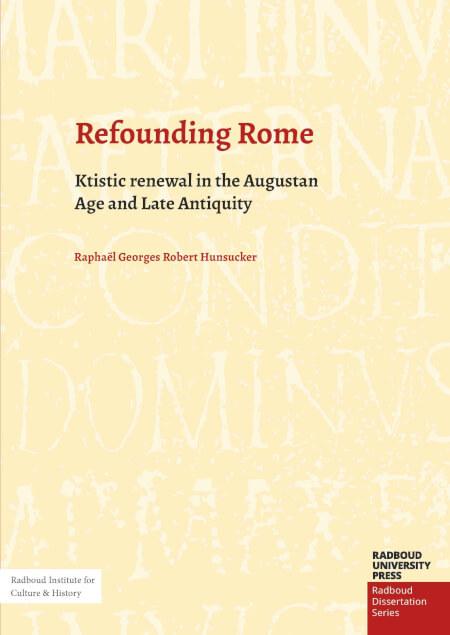Refounding Rome: Ktistic renewal in the Augustan Age and Late Antiquity
Keywords:
Ancient Rome, City-foundation, Vergil's Aeneid, Roman emperors, Early Christianity, ConstantinopleSynopsis
Stories about the foundation of Rome were continuously rewritten, also during Antiquity itself. Often, the city’s most distant beginnings were related to contemporary concerns, and founders of Rome came to act as mirrors through which the Romans, paradoxically, recognized the novelties of the present in their primordial past.
A concrete example of this phenomenon is what may be defined as ‘ktistic renewal’: influential agents of change or innovation could come to be seen as ‘second founders’ of the city, redefining the concept of foundation itself. The epithet ‘second founder’, for example, was famously applied to the emperor Augustus, comparing him to one of Rome’s original founders, Romulus. In Late Antiquity, however, the apostles Peter and Paul were also seen as new founders of a reborn, Christian Rome. In both periods, foundational figures thus came to legitimate far-reaching religious and political changes. This thesis examines the repeated recourse to new and second founders of Rome in the Augustan Age and Late Antiquity, to highlight the phenomenon of ‘ktistic renewal’ in two very distinct, but ultimately comparable contexts.

Published
Series
Categories
License

This work is licensed under a Creative Commons Attribution-NonCommercial-NoDerivatives 4.0 International License.

